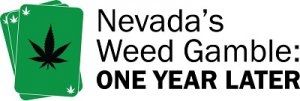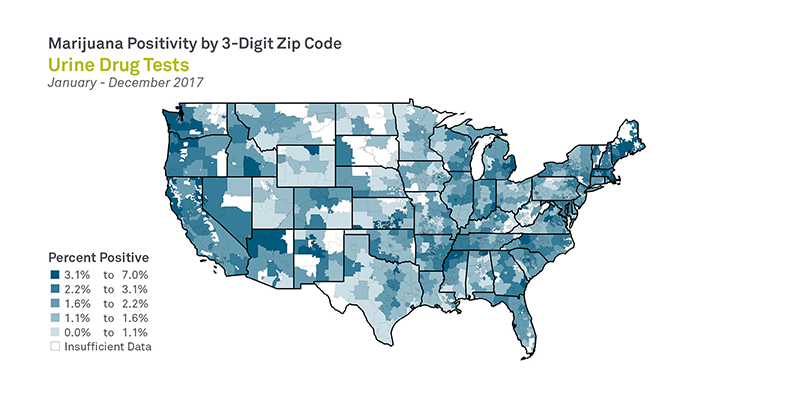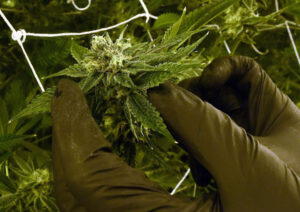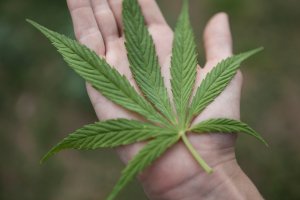4:18
News Story
Are job drug tests for weed on the way out?
 Nevadans and our visitors love legal marijuana. Sales are topping $40 million a month and tax revenue will far exceed the projected $50 million for the first year.
Nevadans and our visitors love legal marijuana. Sales are topping $40 million a month and tax revenue will far exceed the projected $50 million for the first year.
That’s a lot of people smoking weed, eating edibles and vaping concentrates.
Twenty percent of Americans now live in a state where marijuana is legal and many of them risk losing their jobs by indulging in a perfectly legal substance.
The presence of marijuana in the system can linger long after the intoxicating results have passed, rendering testing useless in determining how recently a person has ingested cannabis. Additionally, science has been unable to gauge a correlation between test results and impairment.
With recreational weed legal in nine states and medical use approved in 29 states, those tests are increasingly perilous, given the potential for implicating employees who may have legally smoked weed on a Friday night only to test positive the following week.
For years, pre-employment drug testing has kept job seekers who use cannabis from pursuing their dream job or relegated them to cheating the system via a variety of fake bodily fluids and hair potions on the market.
Now, the dawning of legal weed, the nature of the drug and a tight labor market are combining to force employers to change their ways.
Caesars Entertainment, one of the state’s largest employers, recently abandoned marijuana screening for job seekers. Others are following in Nevada and nationally.
The Society for Human Resource Management says a survey of Colorado employers by the Mountain States Employers Council indicates about 10 percent of companies in the Denver and Boulder areas removed marijuana from employment drug tests during 2015 and 2016.
Positive tests for marijuana are on the rise, according to Quest Diagnostics, one of the largest drug testing labs in Nevada and the U.S.
In just four years, positive tests for marijuana have increased by one half of a percentage point nationwide to 2.1 percent. In much of Nevada, including Las Vegas and Reno, between 2.2 and 3.1 percent of drug tests performed by Quest were positive for marijuana, slightly above the national average and within the second highest category on a national map prepared by the company.
A recent story in Bloomberg predicted the demise of the employment drug testing industry.
As of the beginning of 2018, Excellence Health Inc., a Las Vegas-based health care company with around 6,000 employees, no longer drug tests people coming to work for the pharmaceutical side of the business. The company stopped testing for marijuana two years ago. “We don’t care what people do in their free time,” said Liam Meyer, a company spokesperson. “We want to help these people, instead of saying: ‘Hey, you can’t work for us because you used a substance,’” he added. The company also added a hotline for any workers who might be struggling with drug use.
“This is a modern-day civil rights issue,” says Las Vegas attorney Christian Gabroy, who is representing a medical marijuana patient in what could be a precedent-setting case for not just medical users. “Thousands of people are dying a year from the opioid crisis. Cannabis can be used as an effective tool in medicine to help treat opiate addiction. No employee should be prevented from using a legal substance.”
Gabroy represents Las Vegan Scott Nellis, a former nurse at Sunrise Hospital who worked with mentally ill patients. Nellis, who was hired in 2009, obtained a medical marijuana card after he was injured in 2013 by an aggressive patient, according to the lawsuit. An attack by another patient in 2017 sent Nellis to the hospital’s emergency room for treatment, where he was asked to provide a urine specimen. Nellis says he informed the attending nurse that he was a medical marijuana patient and may test positive. Nellis says in the suit he was told not to worry about a positive test.
Shortly after, Nellis says he was told not to report for work and informed by a union representative that he was going to be terminated by the hospital, which he was for “violation of substance use in the workplace policy.”
“It’s sort of like the clowns running the circus. You have a hospital that is supposed to be treating the mentally ill. Scott tells them he may test positive, they say don’t worry about it and they fire him,” laments Gabroy.
Nellis’ attorney maintains his client never used cannabis in the workplace nor was he impaired.
Is there a perception that pot smokers are always stoned?
“I think unfortunately for a certain segment of the population there’s a stigma associated with people using cannabis. I’m glad it was overcome by voters. Unfortunately, maybe that’s why my client was discriminated against,” Gabroy says. “They could have made accommodations for him, as the law suggests, but I look forward to vindicating his rights.”
Attorney Bruce Young, who represents Sunrise, declined to comment on the case.
Nellis’ lawsuit may set precedent in Nevada.
“Once we win before a jury, the defense will file an appeal. My argument is simple: the Tobacco law. You can’t discriminate against someone for lawful use of a legal substance outside of work,” Gabroy says.
But should that standard apply even to those who hold public safety positions? Can air traffic controllers and pilots smoke a joint on their off time and be trusted with hundreds of lives, much as they do now with alcohol?
Should employers set acceptable limits? And who decides what’s acceptable?
“These are issues that have to be analyzed on a case by case basis,” says Gabroy. “But you can take someone who is entrusted with the safety of individuals like an air traffic controller or pilot, and you can question them about their use, but you don’t do what was done to Scott and terminate on the spot.”
Can an employer override a doctor’s recommendation that a patient smoke marijuana before bed for insomnia? Or some other use that is unlikely to impair performance at work?
“I’m coming after them if an employer decides to do something like that,” Gabroy says. “That’s clear discrimination. Why should the employee suffer discrimination because he has an illness?”
What role do unions play in protecting employees who partake off the clock but are disciplined on the job?
“I believe unions have an obligation to protect anyone who pays dues. So far, I haven’t seen a case where they’ve gone to bat for a member who uses cannabis,” says Gabroy.
Culinary Local 226 spokeswoman Bethany Khan says bargaining agreements allow employers to discipline employees for using drugs or alcohol on the job but don’t address off the job use.
“The Culinary Union has not allowed employers to regulate employees’ off-duty use of substances, legal or illegal,” she says. Khan says the union has a grievance process “and we would fight for them to have justice. I haven’t heard of any cases of that happening,” Khan said in a message to the Current.
Our stories may be republished online or in print under Creative Commons license CC BY-NC-ND 4.0. We ask that you edit only for style or to shorten, provide proper attribution and link to our website. AP and Getty images may not be republished. Please see our republishing guidelines for use of any other photos and graphics.




